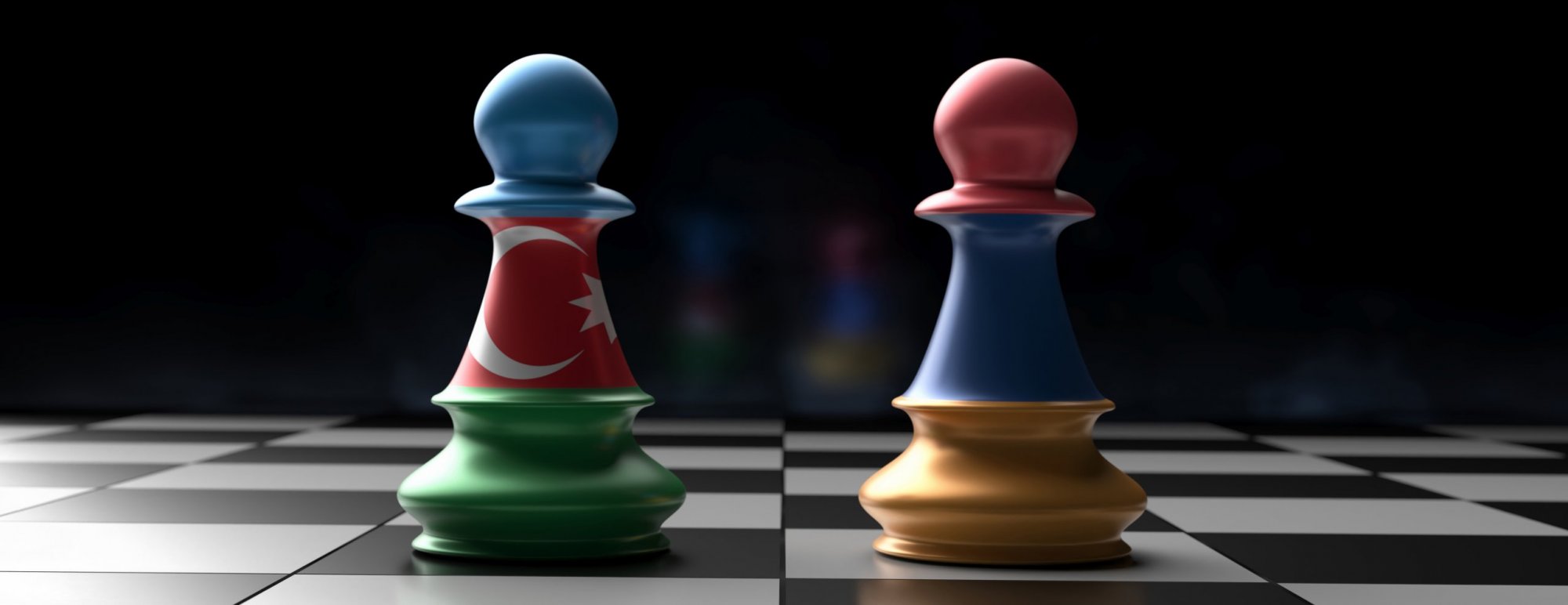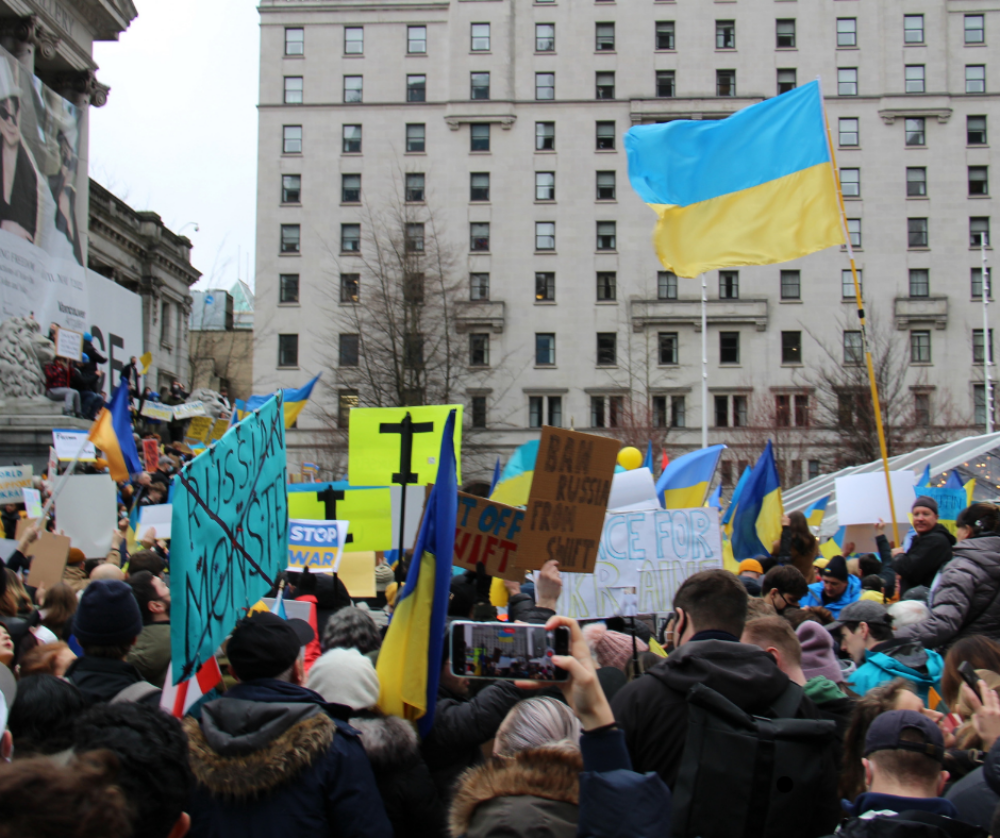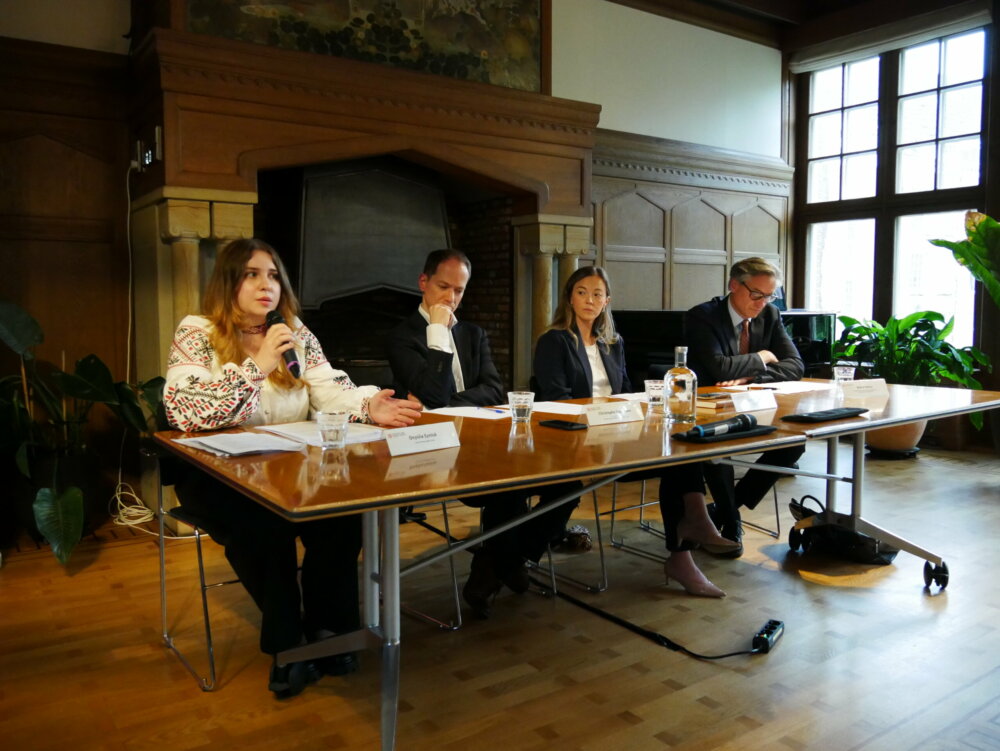rawf8/shutterstock

Nagorno-Karabakh: The international community must stop looking the other way
An armistice brokered by Russia on 9 November has for the time being put an end to the bloody war between Armenia and Azerbaijan over the disputed region of Nagorno-Karabakh. The war claimed the lives of thousands of soldiers and civilians on both sides. Unfortunately, however, European leaders and the public watched the war indecisively and indifferently. Reactions were essentially limited to ritualized and cautious appeals to both countries for a ceasefire and a peaceful resolution of the conflict.
This attitude is irresponsible, not only given the suffering the conflict has caused, but also because the armistice has not brought about a solution. Since 1994, Azerbaijan has been looking for revenge, as well as for a revision of the situation created by the first war of 1992-1994— in particular the Armenian occupation of significant parts of its territory. Now, it is the Armenian government that refuses to accept the loss of Nagorno-Karabakh and other Armenian-occupied territories linking the disputed region to Armenia.
The conditions of the ceasefire agreement offer no basis for a lasting arrangement that is satisfactory to both Armenia and Azerbaijan. The future status of the parts of Nagorno-Karabakh now monitored and secured by Russian peacekeeping forces is completely open. Interestingly the agreement also does not provide autonomy for the Armenians living in Nagorno-Karabakh. The deep enmity between Armenia and Azerbaijan will remain.
Beyond the narrower regional context, another cause for concern should be the adverse effects of the war on the post-Cold War security order created within the framework of the OSCE. It should prompt the European Union and NATO to rethink their position. Above all, can the use of military force, the law of ‘might is right’, the failure of peaceful conflict resolution mechanisms, the failure of multilateral organizations, simply be accepted?
Is might really right?
Especially after the illegal annexation of the Crimean Peninsula, the Nagorno-Karabakh conflict has once again made clear that the realization of territorial claims with military force seems to have become acceptable again. After the first skirmishes in July, for which the two sides blamed one another, Azerbaijan on 27 September launched a large-scale military attack on Armenian-inhabited Nagorno-Karabakh. Turkey provided both encouragement and active support in the form of Syrian mercenaries, arms and related materiel.
Spurred on by its military successes, Azerbaijan went for all-out military victory. It was stopped only by Russia’s late-stage intervention and the enforcement of a ceasefire. It is worth noting that neither the use of military force nor Turkey’s warmongering has been condemned with the necessary severity or decisiveness by either individual States or multilateral organizations. The United Nations Security Council was unable to respond formally and appropriately to the escalation, while the EU carefully continues to avoid taking sides. The obligatory condemnation of the war and the call for negotiations by the so-called Minsk Group, which has been tasked by the OSCE with mediating in the conflict since 1992, have fallen on deaf ears.
But Azerbaijan cannot simply maintain to be in its rights to restore its territorial integrity by reclaiming what Armenia had taken from it during the 1992-1994 war. The case is more complicated and difficult. Essentially, it is about balancing two guiding principles laid down in the 1975 Helsinki Final Act of the Conference on Security and Cooperation in Europe (CSCE): the right to territorial integrity, claimed by Azerbaijan, and the right to self-determination, claimed by the Armenians living in Nagorno-Karabakh. Even if the right to self-determination does not necessarily require statehood, military force must not be an accepted means of enforcing claims.
Over the past few years, Azerbaijan has made extraordinary efforts to modernize its armed forces. Armenia, on the other hand—which, unlike Azerbaijan, has no significant income from oil and gas production—could hardly match these. The unmistakable omens that Azerbaijan was seeking revenge for its defeat more than two decades ago were largely ignored by the international community.
Moreover, the work of the OSCE Minsk Group was neglected. This is illustrated by the fact that the members of the group—including countries such as Germany, Sweden, Italy and Turkey—left the diplomatic mediation efforts almost entirely to the Co-Chairs of the Minsk Group (Russia, the United States and France). The Azerbaijani reservations regarding the impartiality of the latter three States were not taken seriously.
Lack of international action
The United Nations and the OSCE are not alone in having failed to act by ceding decisive action to the conflict parties, as well as to Russia and Turkey. NATO could have also acted by restraining Turkey, a member state. President Recep Tayyip Erdogan apparently saw the conflict as an opportunity to pose as a promoter of the “Muslim cause” and to expand Turkey’s influence into a region which, until now, Russia has considered to be its sphere of influence.
This should have triggered the attention of the NATO Council, since Turkey’s reckless and uncoordinated action carried the risk of sparking conflict with Russia. After all, Moscow, in the interest of maintaining its influence in the Caucasus and Azerbaijan, had initially refrained from assisting Armenia in the war. Even if the ceasefire is seen as a sign of Russia’s strength and continued influence in the region, Turkey’s support for Azerbaijan has given Ankara a foot in the door. This is why tensions and potential conflict are to be expected in the coming years.
The Nagorno-Karabakh war shows how far away we are today from the expectations and hopes harbored at the end of the Cold War. In the 1990 Charter of Paris, the participating States of the CSCE solemnly invoked the dawn of a New Europe shaped by common values; the rule of law and democracy; cooperation and friendly relations; the renunciation of force; and the exclusively peaceful settlement of disputes.
One may argue that, in terms of realpolitik, the scope for action to maintain these lofty goals is limited. However, the complexity of the Nagorno-Karabakh case, as well as political or economic considerations, must not be used as a pretext for inaction. Reticence and efforts to maintain a misconceived neutrality are out of place. This is not only true in view of the victims and the humanitarian consequences of the war. Now, the task is to send the right foreign policy signals to preserve the peaceful coexistence of the states in the Eurasian region, and to initiate a diplomatic process to eliminate the causes of the conflict. The available multilateral instruments must actively be used to that end.
It is difficult to see why the UN Security Council is not addressing the situation. A resolution should not only condemn Azerbaijan’s military offensive, the military support and encouragement from Turkey, as well as the longstanding violation of Azerbaijan’s territorial integrity; it should also provide an impetus for developing a diplomatic solution. Above all, particular attention must be paid to the investigation and prosecution of war crimes—committed in particular by the Azerbaijani side.
How the OSCE can help
Due to its mandate as a cooperative security organization and its function as a regional arrangement under Chapter VIII of the Charter of the United Nations, the OSCE should be called upon to work out a diplomatic solution.
The Organization can build on the preparatory work that has already taken place. For example, the OSCE Minsk Group submitted a proposal for a solution in 2007 (the so-called Madrid Principles), which envisaged, among other things, the withdrawal of Armenia from the occupied territories outside Nagorno-Karabakh, the return of Azerbaijanis to those territories, the stationing of peacekeeping forces, reconstruction aid and, at a later date, a referendum on the status of Nagorno-Karabakh.
To prevent the failure of mediation efforts, as has repeatedly been the case since 1994, the OSCE must finally be given the political attention it needs. Targeted pressure is required to bring Armenia and Azerbaijan to the negotiating table and to have them compromise on a solution that in a fair manner takes the principles of territorial integrity and the right to self-determination into account.
Encouraged by Turkey, Azerbaijan—which considers itself the victor of the war —will likely see little reason to make concessions. The EU and NATO might therefore be called upon to take measures including sanctions and a ban on the export of arms and other militarily relevant goods to both Azerbaijan and Turkey. In considering such measures the EU should not be guided by policy considerations with regard to migration and the economy. In addition, NATO should anyhow put a stop to the erratic behavior and great power fantasies of Turkish President Erdogan. Attempts at appeasement have only further encouraged Erdogan to pursue policies that endanger stability in the Caucasus, Central Asia and the Middle East, and call into question the very cohesion of NATO.
Finally, Armenia now needs political support as well as humanitarian and economic assistance. This is especially important in order to safeguard and promote democratic development, as well as to provide reassurance in light of Armenia’s exposed geographical location and fears that another genocide, such as the one in 1915, could happen again.
The aforementioned suggestions may appear all very well. Some might put it even more brutally: In view of the deep-seated enmity between Armenia and Azerbaijan, the the OSCE’s past inability to resolve conflicts, and the previous policies of NATO and the EU, they are unrealistic.
And yet, determined foreign policy engagement, especially by the EU, is a question of foreign policy credibility. Bowing to the seemingly inevitable, amounts to a foreign policy abdication. Apathy and continued political maneuvering—as shown by the EU, NATO and other Western states—do little for both the Nagorno-Karabakh war and the security of Europe. The peaceful coexistence to which all European states committed themselves after the end of the Cold War must not be jeopardized.
The post-Cold War order has been deeply shaken, and uncomfortable times have dawned in the OSCE area. Europe has much to lose. That is why EU member states, and also NATO, must stand strong and not give in to aggressive demands or positions by individual States. The readiness for cooperation and detente is just as necessary as providing for the required capabilities for military defense.
*Rüdiger Lüdeking, Ambassador (ret.), from 2012 to 2015 Permanent Representative of the Federal Republic of Germany to the Vienna-based Organization for Security and Cooperation in Europe (OSCE).



Comments
* Your email address will not be published